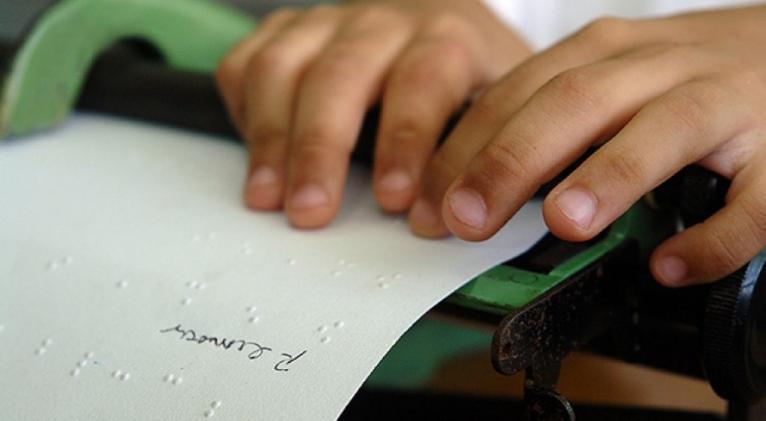Special Education in Cuba: One good turn deserves another

This January 4 when Cuba’s Special Education celebrates its 58th anniversary, it is worth having a look at its beginning and compare it with the present. Only then one can understand that the road traveled has been long, and that many people and institutions have taken part in this task.
Beyond the figures that accompany these lines, it is important to acknowledge the political will of the country that –regardless of deficiencies and difficulties– prioritizes the care of children, teenagers and youth with special educational needs (SEN), associated with disability or not.
It is an education that beyond resources (some specialized such as Braille machines for blind and visually impaired schoolchildren) requires the dedication and understanding of those who work in this type of institutions, where the fundamental role is not only played by the teachers of the basic subjects, but also all the workers (such as psychologists, psychopedagogues, doctors, Physical Education teachers, rehabilitators, and support staff, just to mention a few), who allow the daily work of each one of these schools.
The fact that every year over 1000 students with SEN continue their studies in Technical and Professional Education and a similar figure gets a job (these are just two examples of the results) reflects the support that Special Education has on the island.
It is true that the school and all its daily work are not only behind each of the personal stories, but also the families; parents who often leave their professions and trades aside to devote themselves entirely to their children.
Every morning several buses travel from any corner of Havana –in other provinces too– transporting schoolchildren to the centers and returning them to their homes in the afternoon. It’s worth highlighting that even during periods of fuel shortages these routes are maintained.
Special Education in Cuba has institutions, professors (both middle and university level), specialists, teaching means, and other resources that make it viable. However, we increasingly see a decrease in the enrollments, due to early detection of disabilities and quick intervention, which allow a greater inclusion in regular contexts.
Add to this that in 2001 there were 436 schools in the country but the figure decreased to 336 in 2019, and the enrollment (in the same period) has dropped from 55,053 students to 33, 639.
Despite the progress, there are still deficiencies, linked to the preparation of teachers (especially those who do not have university level); the limitations of resources to guarantee labor qualification of the students, and the fact that the institutions do not always create the spaces and enable the conditions for the active participation of the students, regardless of their characteristics and possibilities.
Nevertheless, such realities do not tarnish the achievements of Special Education in Cuba, with a very sad history before the triumph of the Revolution, when only people with certain purchasing power could access it. There were about 14 institutions, which enrolled about 134 children with intellectual, auditory, visual disabilities, and language disorders.
From the point of view of preparation, there were no specialized criteria with regard to this teaching, but each center was ruled by the personal pedagogical criteria of those who directed them. On the other hand, nowadays 85.2 percent of active teachers are university graduates, who left higher education centers with the required knowledge to meet these special educational needs.
In addition to conceiving it as an inclusive and integrative education, we can also say that it is open to the most modern and up-to-date knowledge, which allows to walk safely towards superior care. This is evident in the symposia dedicated to Special Education in the International Pedagogy Congress, which takes place in Havana every two years.
It must also be said that SE does not walk alone in this aim of achieving the maximum comprehensive development of people with special educational needs associated with disability or not, because other institutions, such as the Ministries of Public Health, Labor and Social Security, and Higher Education, as well as the Institute of Sports, Physical Education and Recreation, walk along with it and prove that without them it would have been impossible to speak at present about the results that contribute to the attainment of social justice and equity, aspects that make us feel proud to be Cubans.
Translated by Jorge Mesa Benjamin / CubaSi Translation Staff













Add new comment